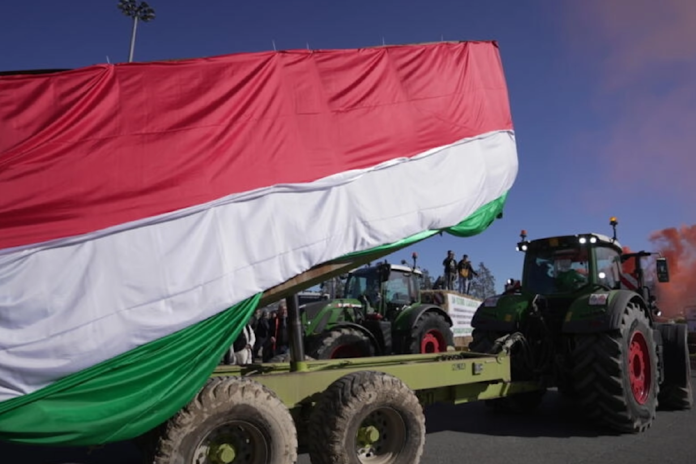Italian Prime Minister Giorgia Meloni arrived in Tokyo to hand over the G7 presidency as thousands of farmers on tractors went on strike in Rome on Monday in response to Brussels’ agricultural policies.
Meloni met with Japanese Prime Minister Fumio Kishida on Sunday to hand over the G7 presidency, which has now passed to Italy. Kishida travelled to Rome a year ago to strengthen the alliance and sign a strategic partnership that has seen trade exchange between the two nations rise by 10 percent to around 15 billion euros.
But while Meloni focuses on the presidency, thousands of tractors are arriving in Rome in open confrontation with Brussels and the government unless it backs their protest. Meloni said, referring to the increase in funds in the National Recovery and Resilience Plan, which now provides €8 billion, instead of €5 billion, to the agricultural sector:
We have always met the farmers, one of the main worlds I have paid attention to, the facts prove it. You can always work to do better and more, I am always willing to listen to requests.
Farmers have united all over Italy. They are protesting against Brussels’ agricultural policies, against rising fuel and raw material prices, and against excessively low prices for their products. According to them, they produce for free or even at a loss. The leader of the farmers’ revolt, Danilo Calvani, said:
In Italy, we will not do as Brussels does, we have never done it. This allowed us to get to Rome. Protests continue throughout Italy and are planned for almost the whole week. Green policies are devastating for our sector. (…) They prevent us from producing, but they do not stop the free market bringing goods to Europe.
A group of farmers led a cow through the centre of the northern city of Milan in protest, while many other farmers from Tuscany and other parts of Italy began their march towards the capital. They are expected to reach the outskirts of Rome later in the week. Danilo added:
We will surround Rome, not only with the tractors and not only for a day.
It will be the biggest protest by Italian farmers in recent weeks, following smaller unrest across the country. Farmers have said they have no plans to march with tractors into the centre of the capital.
They complain of costly bureaucracy and cheap imports that reduce their production, leaving them with little or no profit, as well as high energy prices and the impact of European Union policies on the environment and climate change.
The movement began in France last month and has since spread to Germany, Belgium, Poland, Romania, Greece and the Netherlands, leading to road closures and tractor convoys crowding cities.
In Greece, around 2,000 farmers protested in the country’s second-largest city of Thessaloniki on Feb 3, calling for increases in aid.
n Germany, hundreds of farmers on tractors disrupted access to Frankfurt Airport, the country’s busiest, in opposition to a reform of diesel taxation, police said.
In Spain, the three main farmers’ unions have announced more protests in the coming weeks, with a major demonstration planned for Barcelona on Feb 13.
In France, security forces cleared the few remaining blockades of motorways a day after the main agricultural union called for them to be lifted following government concessions.
